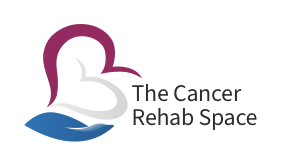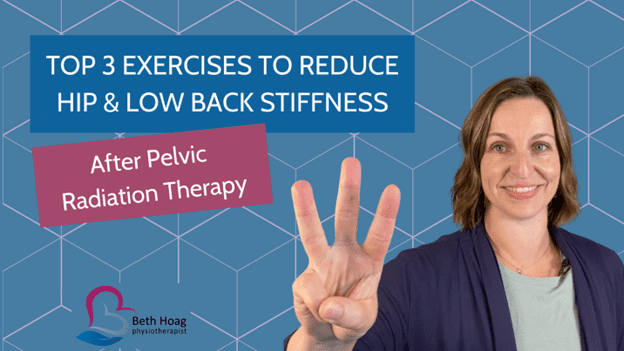But even if you know someone who has recently been through the same cancer surgery as you, your experience might be completely different. Everyone’s experience is unique and comparing yourself to one other person can set you up with unrealistic expectations.
Over my 14 years of working in cancer rehab physiotherapy, I have seen clear patterns in how people recover from cancer surgery, and I have answered similar client questions and concerns. Often, when I explain “what is normal”, clients respond with a huge sigh of relief. This is why I have written this blog.
How Your Body Heals After Cancer Surgery
Before we dive into some of the normal sensations you may experience after cancer surgery, I think it’s important to understand what is going on in your body. Though everyone heals at a different speed, the initial days after cancer surgery are similar for everyone.
Think of your cancer surgery like an “injury” to the body from which you must heal. The first few days after cancer surgery, your body is bringing in all the “products” it needs to heal from surgery. (Think of it like pulling together all the ingredients you would need to bake a cake.) Your body knows it needs to increase blood flow for healing in addition to bringing in different types of “repair cells” to start forming healthy scar tissue to repair the body area where you had your surgery. Alongside all of this, there are very normal sensations that will occur, as I will describe below.
- Pain and Discomfort
Though no one likes to experience pain and discomfort, this is a normal part of your cancer surgery healing process. This is your body’s natural way of saying “hey… something here is different and needs a little attention.” It is also a natural by-product of some of those special cells your body is bringing into the surgery area to begin the healing process.
Even though pain and discomfort are normal, it’s important to communicate how you are feeling with your medical team and to follow their advice regarding pain medication. I cannot stress enough that you do not need to be a superhero right now; it’s important to stay ahead of your pain by taking your pain medication as prescribed. If you are doing all of this and your pain is still intense, speak with your medical team about this so they can adjust your medication appropriately.
- Swelling and Tissue Warmth
Swelling and tissues being warm to the touch around the surgery site is completely normal after cancer surgery. This is a by-product of the normal healing process in these early days. Remember that your body is increasing blood flow and delivering “special cells” to the area to heal; swelling and tissue warmth is created in the process.
What I cannot stress enough, is that post-surgery swelling is NOT lymphedema. I have fielded this question hundreds (if not thousands) of times in my career, and I cannot stress this point enough. However, if the tissue warmth or swelling is getting progressively worse and/or spreading to other areas of the body, you need to speak with your medical team about this promptly (as this could be caused by other things.)
- Numbness and Tingling
Depending on the type of cancer surgery, different nerves can be impacted (most often temporarily, but in some cases permanently). This can create feelings of numbness and/or tingling in an area of the body.
For example, after a sentinel node biopsy or lymph node dissection in the armpit (often done for individuals with breast cancer or malignant melanoma in the upper body), it is extremely common to experience numbness and/or tingling in the armpit, breast (if applicable), and upper arm (especially along the back of the arm.)
It can be helpful to speak with your surgeon about what is normal for your specific surgery, so you know what to expect. Typically, these symptoms will gradually fade over time.
- Bruising
Several days after cancer surgery, you may notice bruising appear. This delayed effect causes some people to be concerned that “something bad has happened” or that “they’ve done something to injure themselves”, but rest assured that this bruising is also part of that natural healing process. It may be very close to the site of your surgery, or it may actually be farther away. When it’s farther away, some of the blood pooling (which creates a bruise) settles lower down from the surgery site thanks to the power of gravity.
Time and gentle movement will be your best healer for the bruising, but if the bruising is severe, there are other strategies (such as kinesiotaping and manual lymphatic massage) that might assist with your healing process (but this is not necessary for the bruising to heal.)
- Feeling Tired and Drowsy
Remember that you have just had cancer surgery and your body will be using up a lot of energy to start the healing process. In addition, you will also be recovering from surgery anesthetic (there are several different types) which can leave your feeling groggy and sleepy for a few days. Though it’s important to get moving (e.g. walking and specific movement exercises for your surgical area), it’s equally important to pace yourself and balance movement with rest so your body can heal.
Want to Learn More About What YOU can do to Recover After Cancer Surgery?
Not everyone needs the one-on-one help of a cancer rehab physiotherapist, but I believe that everyone deserves to understand what’s going on in their own bodies and what they can do to help themselves recover and feel as well as possible.
I have created an online and self-paced program to help individuals facing and/or recovering from breast cancer surgery. This in-depth program will walk you through the first 3-6months of your post-surgical healing, giving you many of the tools you need to stay in the driver’s seat of your recovery.
To learn more about this program, click here.
Until next time, be well.
Disclaimer – These blogs are for general information purposes only. Medical information changes daily, so information contained within these blogs may become outdated over time. In addition, please be aware that the information contained in these blogs is not intended as a substitute for medical advice or treatment and you should always consult a licensed health care professional for advice specific to your treatment or condition. Any reliance you place on this information is therefore strictly at your own risk.




